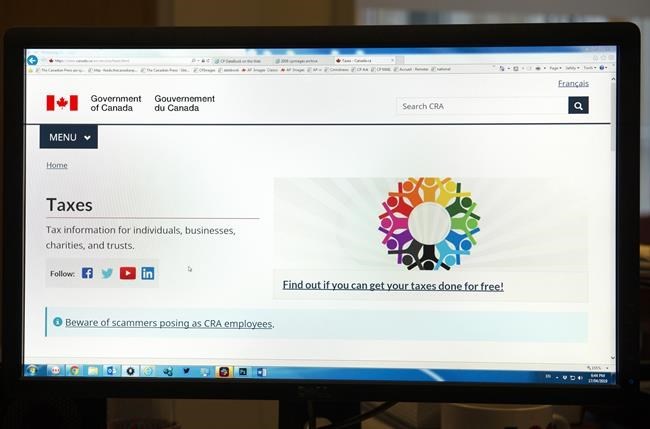A few years ago, Ali Najaf decided to file his taxes on his own for the first time.
Najaf, an HR professional in Vancouver, used a free service in university for tax filing, and then after graduation began paying a professional to file them. But in 2021, he thought it would be useful to learn to do his taxes on his own.
“I believe in learning by doing,” said Najaf.
But he was surprised at how difficult it was, and ended up missing out on a work-from-home benefit. In 2022, he decided to try again, this time with help from a friend.
Najaf recently got married and knows that might change his tax situation, so this year he's considering hiring a professional. But if he does, he wants to learn as much as he can to build a strong base so that next year he can file on his own again.
Najaf said navigating the tax system can be especially difficult if your first language isn't one of the two official languages, and said he’s struggled to find all the information he needs.
His advice to others doing their taxes for the first time is to educate themselves and figure out their options.
“Doing it properly is (more) important than just saving some money,” he said.
Najaf isn’t the only Canadian juggling whether to file their taxes themselves and risk missing out on benefits, or to pay a professional to do them for a higher price. And if it’s your first time filing your taxes, the decision may be even more stressful.
Regardless of which route you go, you should start early so you can get all your documents together before the filing deadline, said Alim Dhanji, a Certified Financial Planner at Assante Financial Management Ltd.
“I think the biggest mistake is ... not starting early enough, and not being organized,” he said.
Dhanji recommends making sure you’re signed up for a My CRA account with the Canada Revenue Agency, where you’ll get your notice of assessment and other information. It’s also where you can get your tax information from prior years, which you may need to file.
The documents you need depend on your situation — if you have a job, you’ll receive a T4 form for your employment income from the company, while students get a slip with information about tuition from the school.
If you’re self-employed, you’ll need much more detailed documentation on your expenses and income.
Meanwhile, anyone filing taxes might have to track down other forms for things like loans, scholarships, or other types of income, said Yannick Lemay, a tax specialist at H&R Block.
There are several different ways to file your taxes, said Dhanji. Many people go to an accountant or a firm such as H&R Block, usually for a fee.
If it’s your first time you may want to go this route, said Lemay, to make sure you don’t miss anything.
“There are more than 400 tax credits and deductions,” he said, and often people miss many of these when they file on their own.
For example, if you’re self-employed or work from home, you may also be able to claim some of your home expenses, Dhanji said.
But there are plenty of free and low-cost options out there as well. There are often free tax clinics for newcomers, low-income people or students, said Dhanji. The CRA has a web page dedicated to these clinics which includes a tool to help you find one near you or to connect you to a virtual clinic.
Online tax filing software like UFile or TurboTax has come a long way, Dhanji added. The software will usually ensure you don’t miss the most important lines, he said.
The cost of filing with online software varies, but can be as low as $20. UFile offers its software for free to students, and if you’d prefer to get a professional’s help, some firms have student discounts. H&R Block has its own online filing software, which according to its website is free if you’re 25 or younger.
If you’re not sure you’ve got a handle on your taxes, it’s always better to call an expert and ask your questions, even if they feel silly, said Lemay. There are online checklists you can use to ensure you’ve gathered all the right information, he said.
The deadline to both file your taxes and pay any income tax you owe is April 30, though the filing deadline for self-employed people is June 15.
Though the filing deadline is at the end of April, if you have a Registered Retirement Savings Plan you’ll want to make your contributions before March 1 so that they count during the 2022 tax year, said Lemay.
Lemay said it’s best to meet the deadline, as there are some consequences to being late, particularly if you owe taxes. But if you miss it, you can still file.
According to the CRA’s website, if you file late and have a balance owing, you will be charged a penalty in addition to interest on your balance.
If you make a mistake on your filing, it’s possible the CRA will find it and adjust it for you, said Dhanji. Otherwise, you can file an adjustment to rectify the error.
And if you haven’t done your taxes for a few years, it’s likely not too late to make up for lost time, said Dhanji, even though there may be penalties.
“Usually it's not the end of the world. You can get caught up, and then it's a big load off your shoulders,” he said.
This report by The Canadian Press was first published Feb. 14, 2023.
Rosa Saba, The Canadian Press



